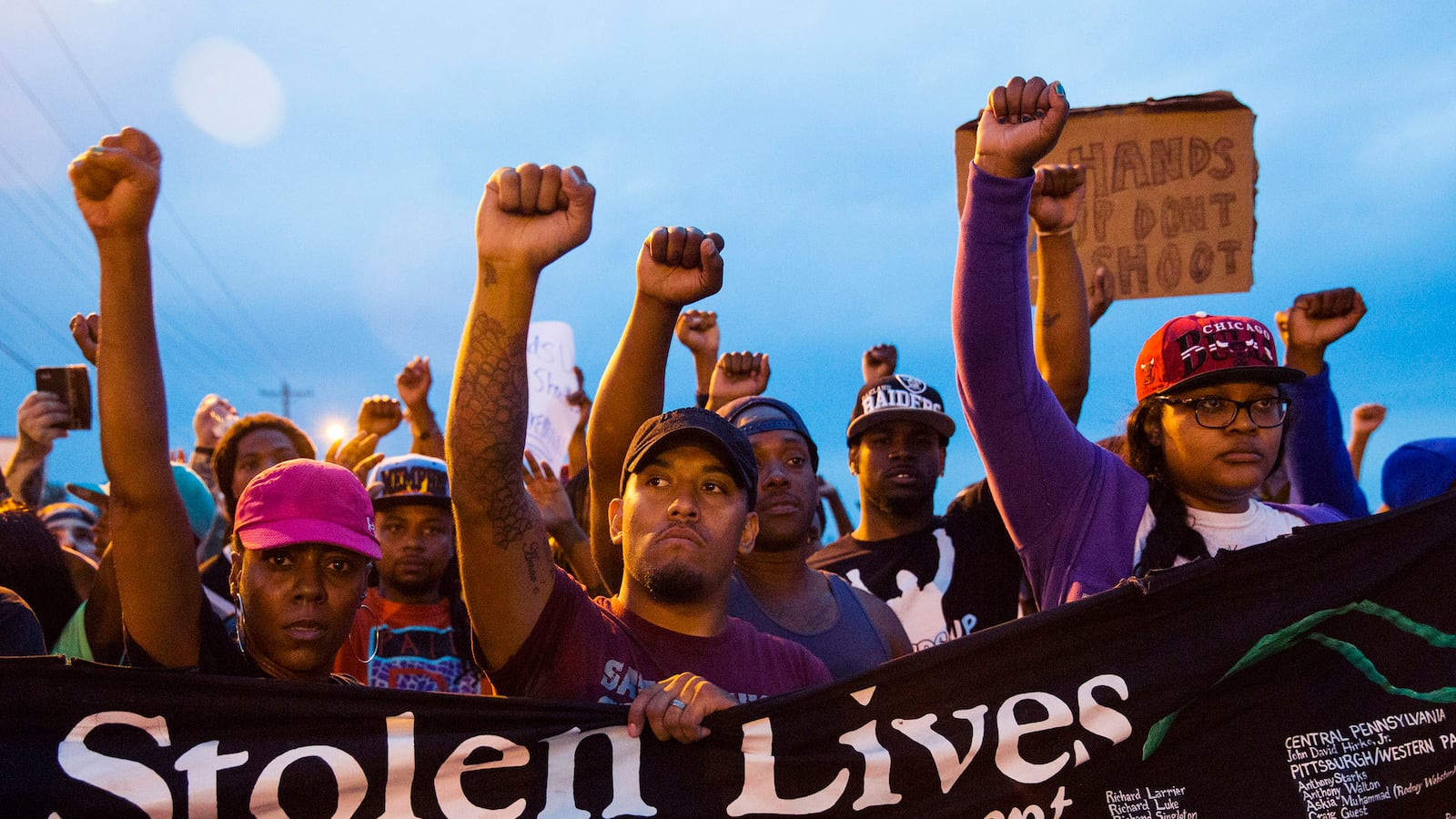The quaint children’s story Pierre is a cautionary tale about the perils of indifference. Obstinate Pierre refuses to care about anything, even when a passing lion threatens to eat him. (Yes, it’s a story for kids. By Maurice Sendak. Really.) Consumed and eventually disgorged, Pierre is restored to his loving parents, his ennui banished. The lion, unlikely though it seems, becomes a family friend, and the story closes with a moral: Care.
We’re not like Pierre. Apathy isn’t our problem. We care—we care a lot. Show us an injustice, and we’ll slap a hashtag on it in a hot minute. We may even have a national conversation about it. And then? Ooh, shiny! We’re on to the next outrage. Call it hashtag activism, call it slacktivism—worse than indifference, it’s a transitory, bustling attentiveness that passes so quickly it barely registers, yet leaves in its wake a sense that we’ve done something.
So, eyes on the prize, everyone. All the things you were fussed about in the last six months? Most of them are still happening. We’ve just moved on.
1. Less than a mile from my house, more than 60,000 football fans gathered Sunday to watch the Buffalo Bills beat the Detroit Lions. Yet less than a month ago, the country was having a “whither football” moment, driven by the revelation that National Football League officials had likely seen a security tape of former Baltimore Ravens running back Ray Rice punching wife Janay in the face.
This graphic tape and the reporting that followed prompted a national conversation (stick with me, and you’ll learn to loathe those words) about domestic violence: the social and economic factors that make it hard for women to just leave, the tolerance our culture extends to domestic abusers, the way the NFL protects players who have transgressed and whether NFL fandom means tacit approval of same—something 60,000 Lions fans are apparently untroubled by.
And now? Not much has changed. One hopes that domestic violence shelters will see an uptick in donations—money is a good way to show you actually care.
2. Heads up: No one has brought back our girls. This spring, the terrorist group Boko Haram abducted about 250 Nigerian girls from a school. The plight of the missing girls seeped into Western consciousness, acquiring a hashtag (#bringbackourgirls) and celebrity attention. And briefly, it seemed like a hashtag triumph—pretty much everyone, everywhere, was outraged. The international community offered assistance; President Barack Obama sent a team of specialists to help the Nigerian government obtain the girls’ release.
In the weeks immediately following the mass abduction, about 60 of the kidnapped girls escaped. Since then, nothing.
Back in August, an American surveillance plane spotted groups of girls in Boko Haram-held territory. But it’s complicated: Boko Haram is powerful, and the politics of fighting or negotiating with it are fraught. The group, according to one report, wants to swap the girls for Nigerian-held prisoners, something the Nigerian government won’t do. A cleric working in the area has accused the Nigerian government of funding Boko Haram, and Nigeria’s human rights track record has led to U.S. hesitation in sharing intelligence. Meanwhile, Boko Haram continues to seize territory and hostages in Nigeria.
One thing we do know: Nigerian President Goodluck Jonathan has hired a Washington, D.C. PR firm to change the international narrative (http://thehill.com/business-a-lobbying/210635-nigeria-hires-pr-for-boko-haram-fallout) about the missing girls.
3. Ukraine? That’s still happening.
4. Also still happening: Racism. I know, I know—in the wake of the fatal police shooting this summer of unarmed teen Michael Brown, we had a national conversation about race. About the disparities in outcomes for white and non-white Americans, particularly in the criminal justice system. About police brutality, and the militarization of American police, and how the two have paired to victimize, mostly, black men.
Yet despite this national conversation, we’ve failed to fix racism and the policies that led to the tragedy in Ferguson. Crazy, right?
What’s particularly frustrating about our ADHD on this topic is that there are a few things state legislatures could do—namely, throttle back on the amount of military equipment deployed to local departments, pass laws requiring body-mounted cameras, and track police killings and violence. So far, though, we’re seeing a lot more talk than action on these fronts.
5. And our data still isn’t secure, as made plain by the latest installment of “The Fappening,” the deliberate release by hackers of (mostly female) celebrities’ (often risqué) photos.
(Fappening, if you don’t know, is a portmanteau of “fap,” which refers to male masturbation, and “happening.” Sorry.)
The first photos released were of A-list celebs like Kate Upton and Jennifer Lawrence, and the fact that some of those pics were nudes distracted almost everyone from this: Nude photos are data, and if nude photos aren’t secure, other sensitive data aren’t secure, even when housed in remote data storage sites billed as secure. And let’s not fool ourselves—in the modern world, not using remote data storage isn’t an option.
I could keep going, but I’m falling prey to the same outrage multiplicity that bogs down any forward momentum any one of these causes might otherwise garner.
Nancy Kaffer is a columnist at the Detroit Free Press. She’s @nancykaffer on Twitter; you can find her online atfreep.com/kaffer.





